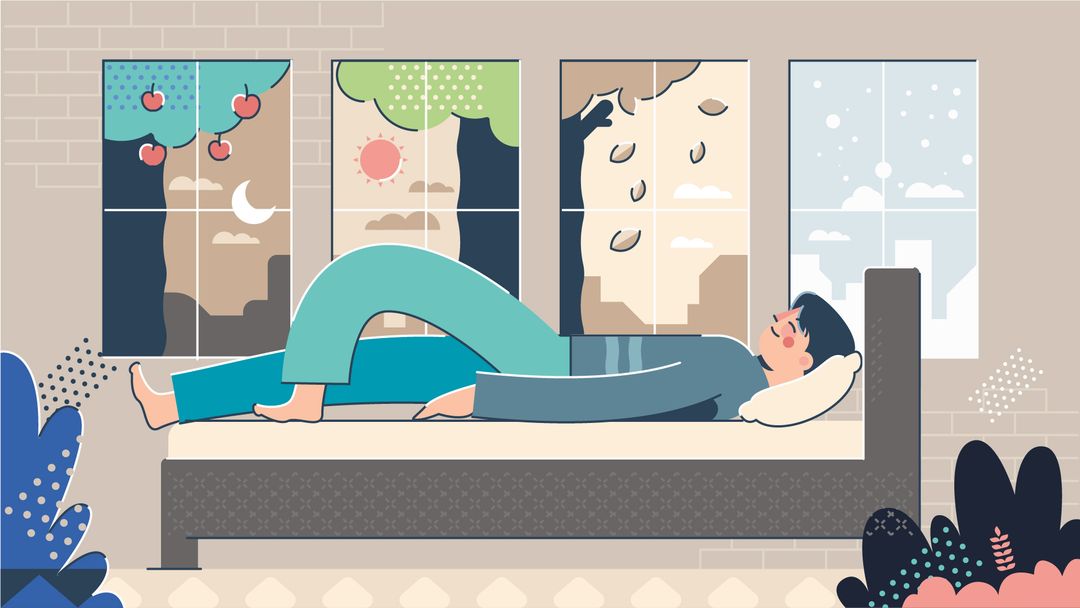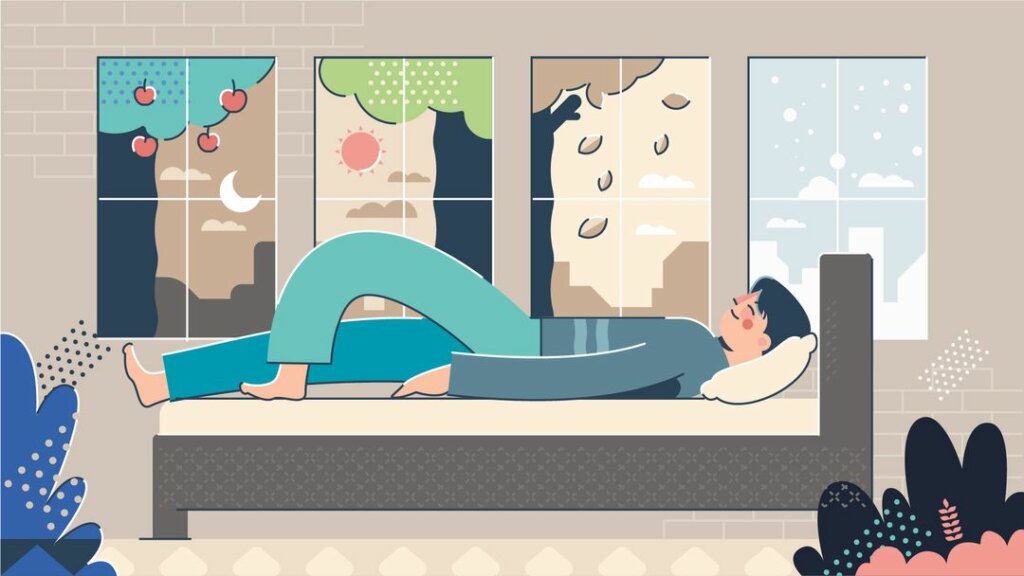Have you ever had a friend or a loved one be asleep for so long, that you literally proceeded to worry, wonder if they were still alive, and then check them for a pulse?
Or maybe you know someone with a crazy, albeit somewhat enviable, ability to stay asleep for almost the whole day…but when they wake up, they get in a weird mood and act like a completely different person?
Welcome to the world of Kleine Levin syndrome (KLS), a rare neurological sleep disorder that involves having recurrent episodes of hypersomnia (excessive sleeping and/or sleepiness) coupled with sudden behavioral changes.
Kleine Levin syndrome tends to affect adolescent males more than any other demographic, although onset can also occur in childhood or early 20s. Sometimes referred to as the “Sleeping Beauty syndrome,” KLS is very rare, and can be difficult to diagnose. Here is what we know so far.
Can’t sleep and don’t know why? Check out our Complete Guide to Sleep Disorders with symptoms, causes, and treatments on over twenty types of sleep disorders.
Quick Facts – Kleine Levin Syndrome
Frequency: Very rare; literally 1 to 5 in 1 million
Risk Factors: Being male, adolescence, brain trauma or injury
Nature: Mental
Treatment: Lithium therapy, prescription medication (e.g. mood stabilizers, stimulants to combat excessive daytime sleepiness or EDS)
Symptoms – Kleine Levin Syndrome
Episodes of Kleine Levin syndrome are cyclical—patients can go weeks or months without exhibiting any symptoms. When a KLS episode occurs, however, it can last for weeks, months, or even years.
In severe KLS cases, the patient is typically unable to get out of bed, uncommunicative, and unable to carry on their daily functions such as going to school or work.
Cases of Kleine Levin syndrome vary in frequency and severity, but below is a list of the commonly observed behavior among those who live with this condition.
- Sleeping for an abnormally extended period of time (15-21 hours a day)
- Waking up confused and disoriented
- Drastic changes in behavior and demeanor
- Irritability, depressive moods
- No sign of symptoms in between sleeping episodes; they appear and act completely ‘normal’
- Episodes of hypersomnia often start with flu-like symptoms (cold and fever)
- Abnormal speech when awakened (slurring, incoherent, childish language, or not talking at all)
- Binge eating, expressing intense hunger when awakened
- Hypersexuality when awakened
Causes – Kleine Levin Syndrome
According to research, exact cause of Kleine Levin syndrome or KLS is still unknown, and it can be hard to give a definitive diagnosis because its primary symptom (hypersomnia) can be indicative of other underlying physiological or psychological disorders.
Below is a list of factors that are often found to coexist with—but not necessarily cause—Kleine Levin syndrome.
- Head trauma – Some believe that head trauma and brain injury affecting the hypothalamus (the brain’s sleep and appetite control center) could cause KLS; however, studies about this remain inconclusive.
- Alcohol use
- Sleep deprivation
- Depression and mood-related disorders
Treatment – Kleine Levin Syndrome
As mentioned, diagnosis of Kleine Levin syndrome can be tricky, and there’s no specific cure yet for KLS patients. However, studies have found certain treatment methods effective in managing the symptoms either in severity or frequency. Here are some of them.
- Lithium therapy – In some cases, lithium and/or carbamazepine may be prescribed for managing Kleine Levin syndrome. According to the National Institute of Neurological Disorders and Stroke, there are cases where lithium therapy has been effective in preventing further KLS episodes.
- Medication – Due to the similarities between Kleine Levin syndrome and other mood-related disorders such as depression, post-traumatic stress disorder (PTSD), and bipolar disorder, mood stabilizers are sometimes prescribed with varying results and levels of effectiveness.
How You Will Overcome Kleine Levin Syndrome
We know it can be very difficult to live with Kleine Levin syndrome as it can affect how you live and function day to day.
Hopefully, however, you get a sense of hope and comfort in knowing that KLS episodes tend to lessen in frequency within 8-12 years, and become less severe with age. According to Orphanet, most patients even stop exhibiting any of the symptoms by the age of 30-35.
It’s also very important to consult a specialist to get an accurate diagnosis and make sure what you or your loved one has is indeed KLS, so you can start proper treatment and symptom management.
While we wait for the scientific community to find a cure for Kleine Levin syndrome, we can help make sure our “sleeping beauty” wakes up with a solid support system that understands what they’re going through, and will help them get through it, day by day.
Did you know?
This article is part of our Complete Guide to Sleep Disorders – A resource that will help you get your quality sleep back. Click here to learn more about sleep disorders, their causes, symptoms and how to overcome them.



